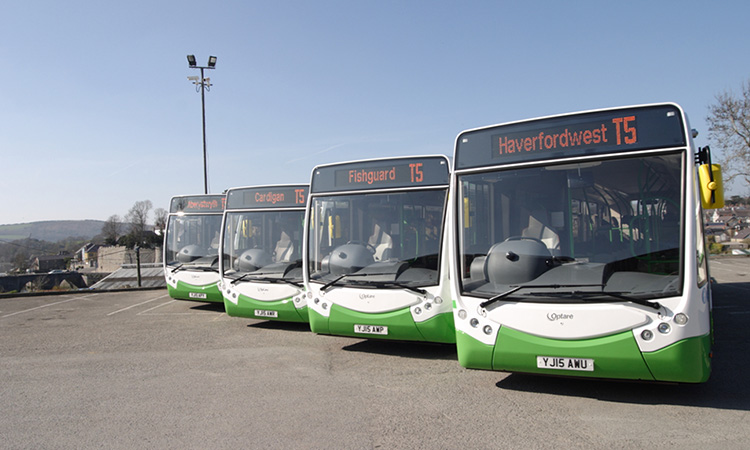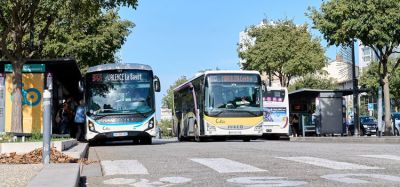National survey highlights affordability and improved convenience of buses
- Like
- Digg
- Del
- Tumblr
- VKontakte
- Buffer
- Love This
- Odnoklassniki
- Meneame
- Blogger
- Amazon
- Yahoo Mail
- Gmail
- AOL
- Newsvine
- HackerNews
- Evernote
- MySpace
- Mail.ru
- Viadeo
- Line
- Comments
- Yummly
- SMS
- Viber
- Telegram
- Subscribe
- Skype
- Facebook Messenger
- Kakao
- LiveJournal
- Yammer
- Edgar
- Fintel
- Mix
- Instapaper
- Copy Link
Posted: 27 April 2023 | Intelligent Transport | No comments yet
Despite rising inflationary costs for operators, the National Bus Fare Survey for 2022 shows that the bus remains a cost-effective option for passengers, with low fare schemes and contactless payments improving the customer experience.


Credit: Confederation of Passenger Transport
The Confederation of Passenger Transport (CPT) has announced that the 2022 National Bus Fare Survey has confirmed that the bus remains good value for money for passengers, with the average price of a single ticket costing £2.47. The average single fare has fallen by 0.1% over the last three, as a result of low fare schemes in Cornwall, the West of England, Manchester, Merseyside and West Yorkshire.
The survey has also highlighted that contactless payment technology, which helps beat the queues to board a bus, as well as more variety of tickets on offer, are improving the customer experience for passengers, following a change in people’s travelling habits since COVID-19.
The latest data has been gathered by transport specialists, The TAS Partnership, who analysed 1,242 sample three mile bus journeys across Great Britain, excluding London, during September 2022. The report found that the lowest single fare for an adult travelling three miles had been offered by Richards Bros in Fishguard, at 90p. The operator also had the lowest average single fare at £1.25.
Taking the bus in 2022 has been found to be far cheaper than running a car, with a weekly bus ticket representing just under 3% of the weekly wage and a private vehicle, over 9% (without any form of finance or congestion charges).
TfL launches new priority seating to enhance accessibility on buses
Graham Vidler, CEO of the Confederation of Passenger Transport, said: “Despite inflationary pressures operators are facing, travelling by bus remains great value for money for existing passengers and those looking to save money or change their travel habits, with the average weekly ticket costing less outside London than within it. Not only can people travel in comfort, but key investment made by bus companies means that now all journeys can be made using contactless payment.”
In total, 37% of samples journeys covering 41 operators could be paid for via a Tap-on Tap-off (TOTO) contactless capping system. Most operators offering TOTO did not offer any discount on day and weekly travel over the purchase of a day or weekly ticket by cash. However, capping ensures that passengers pay no more than the cost of day or weekly tickets.
This contrasts with mobile ticketing with an average discount of 2% for a weekly mobile ticket compared with buying a ticket when boarding a bus. Go-Ahead offered the highest operating group discount of 8% and the highest individual product discount of 19% for Go North East’s Tyne & Wear seven days ticket.
In addition, the survey shows that flexible or carnet tickets, where multiple individual tickets are purchased in bulk, have become more popular post-pandemic. This is a response to the perceived change in working patterns. There are no industry wide standards for product type or discount, however the most common are day tickets in bundles of five and 10, with 62% and 31% of sample journeys able to be made with these products respectively.
If you liked this, you may also be interested in:
▶ WMATA enhances real-time bus information for customers
▶ Oxford’s BROOKESbuses to go all-electric by the end of 2023
Related topics
Accessibility, Passenger Experience, Public Transport, Ticketing & Payments
Related modes
Bus & Coach
Related cities
Cornwall, Manchester, Merseyside, West Yorkshire
Related countries
United Kingdom
Related organisations
Confederation of Passenger Transport UK (CPT), Go-Ahead Group, Stagecoach
Related people
Graham Vidler








